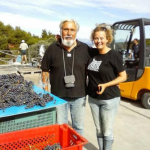Croatian and Slovenian energy agencies are involved in cross-border cooperation projects.
All Slovenian and Croatian energy agencies, more specifically 12 of them, have a common goal on their list of priorities for the upcoming period which is cooperation, that recently took the form of jointly signed applications to the competent bodies, reports Poslovni.hr on October 3. They are currently waiting for the response from the official authorities in Ljubljana, Zagreb and Brussels.
They have, in fact, raised one of the key issues in their initiative, which is to enable them to jointly engage in projects, as it, among other things, brings financial savings that exceed 30%. The initiative refers to the deepening and consolidation of cooperation on sustainable energy projects at European and national levels, and it calls for the Croatian and Slovene governments and the European Commission to make room for renewable energy and energy efficiency projects in cross-border cooperation programmes between Slovenia and Croatia. The question is: isn’t this the first instrument that the EU offers, unlike national and regional programmes? Their request is a response to a problem that exists for a long time: the cooperation within the CBC Programme is under some sort of blockade, which is reflected in the fact that the last tender was published only for projects concerning tourism and cultural heritage. This seems to be the consequence of an oversight that they have been warning about, which is speculated to have been caused by the lack of information and knowledge from the competent EU departments in charge of energy efficiency projects and OIE. Namely, this is a topic that is clearly on the agenda of the European Commission, including the cross-border programmes, which is why the leaders of 7 Slovenian and 5 Croatian energy agencies are expecting the mistake to be corrected with the development of a new component of the cross-border programme. The Commission is expected to recognise the issue and to make available, most likely through the European Investment Bank, technical assistance in the form of EUR 10 million, which would be used to prepare technical documentation, conceptual solutions and financial analyses. Supposedly, the Elena Fund, which is intended for regional projects in the EU, can be used for these purposes.
Besides being diametrically opposed to recent political disputes between Slovenia and Croatia, this initiative is focused on a common interest and cooperation via specific programmes, which is supported by the fact that joint investment projects worth 200 million euros have already been realized. In doing so, areas of special expertise and knowledge, as well as a base of 120 experts in the field, have been developed, which is also the greatest asset created in the process.
Under this initiative, the North-West Croatia Regional Energy Agency REGEA, one of the most successful energy agencies in Europe, has provided over HRK 400m of non-refundable EU funds for project implementation, while the total value of its realized projects so far is close to billion kunas. Director of REGEA Julija Domac, who is also the president of FEDARENE (European Federation of Agencies and Regions for Energy and the Environment) since 2013, a European umbrella association of the regions and energy agencies, points out a specific dimension of the message sent by 100% Slovenian and Croatian agencies.
“I think it’s a rare case for all the participants to gather, which corroborates the seriousness and the capacity of our initiative,” Domac said, adding that “if Croats and Slovenes want to actively work on these projects together, then the Crossborder Programme is the natural and the first choice of an EU instrument”.
Seeing that their letter of request has been sent recently, it quite understandable that there s still no response.
Domac also pointed out that this will be the subject of talks with Vice-President of European Commission, Maroš Šefčovič, who is also the chair of the Political Committee of the EU Covenant of Mayors. The things might develop positively, seeing that REGEA is a contracting partner of the Commission for the next three years in the field of education on behalf of the EC Energy Agency under the ‘ManagEnergy’ programme.There are 471 energy agencies in the EU which are working on investment projects worth a billion euros per year, and REGEA has been working to raise their capacities in competition with large consulting firms.
“We are very successful at doing our job, and if we can advise the EC, we have no reason not to be present in the cross-border cooperation with our Slovenian partners. Now is the time to take advantage of the knowledge we have as well as the possibilities of EU funding and cooperation that is available to us, “Domac said.
The request expresses support for the European transition to clean energy and the modernization of the EU economy based on sustainable energy. As most agencies are established within the framework of the EU Intelligent Energy Europe programme and many are active FEDARENE members, it is stated in the request that they are invited to actively contribute to this important process. Energy agencies are project-oriented and investment-oriented and create new values, so it is suggested that these programmes focus on investments and be oriented to practical implementation as soon as the capacities are built.
Translated from Poslovni.hr









